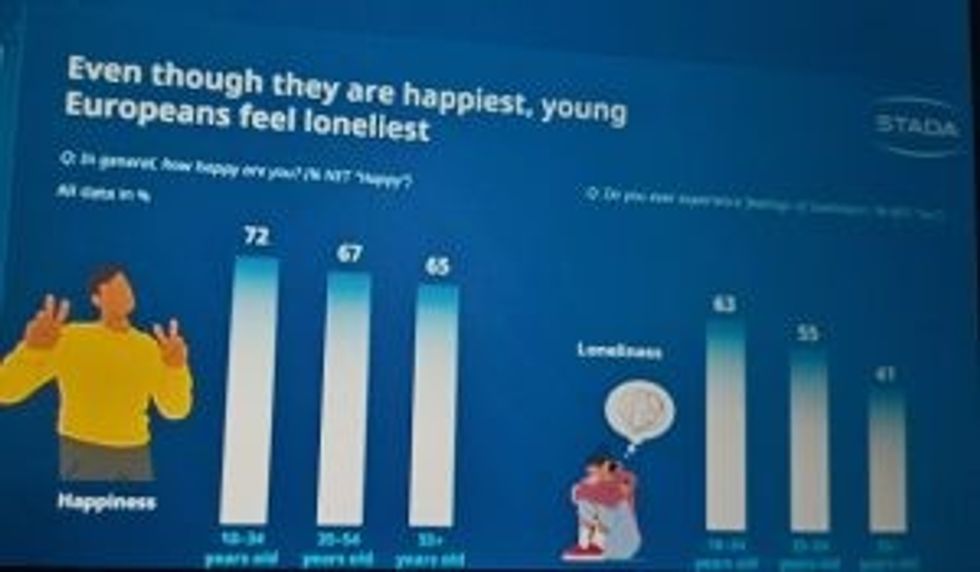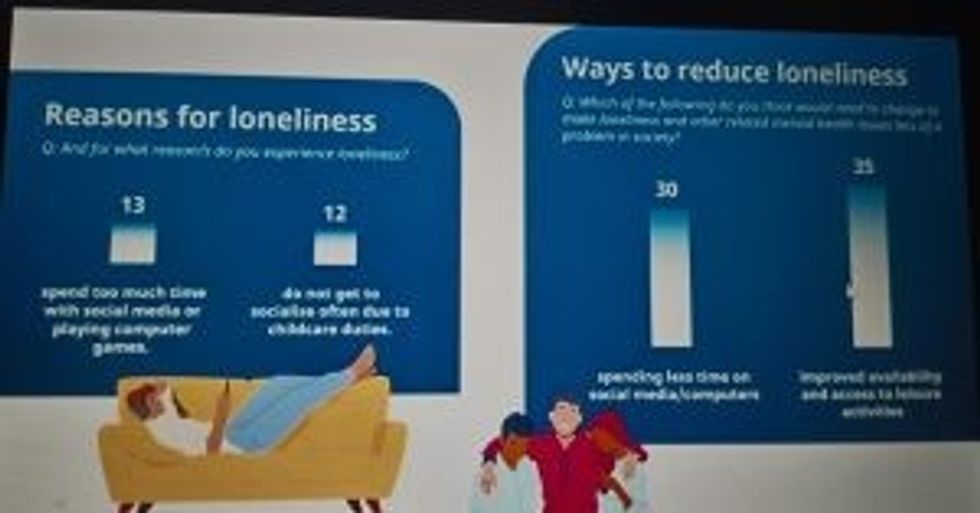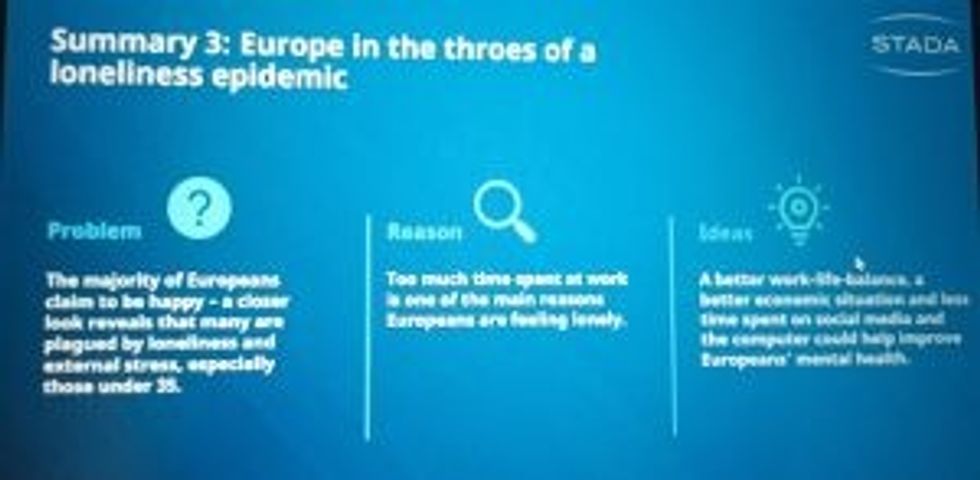Younger Europeans are more prone to feelings of loneliness, largely due to their extensive screen time
Despite being more connected than ever, the majority of Europeans are experiencing feelings of loneliness. The STADA Health Report 2024, released on Monday, revealed that over half (52 per cent) of Europeans “always, often or occasionally” feel lonely.
Although the younger generation reports the highest levels of overall happiness, they are the ones most affected by this current loneliness epidemic.
Nearly two-thirds (63 per cent) of Europeans aged 18 to 35 reported feeling lonely, compared to 41 percent of those aged 55 and older – according to the report, based on a survey of over 46,000 respondents aged 18 to 99 across 32 countries.
Extensive screen time is contributing to increased loneliness among younger people. Europeans under the age of 34 are much more likely to spend long hours on their devices (41 per cent) than those aged 35–54 (22 per cent) and those over 55 (13 per cent).
The survey found that people who spend a "long" or "fair" amount of time on social media were significantly more prone to feelings of loneliness compared to those who restrict their screen time. Moreover, extensive screen time was also associated with more intense feelings of loneliness.
However, many young Europeans remain unaware of this correlation, as only 20 per cent of younger respondents attributed their feelings of loneliness to spending extensive time on social media or playing computer games. They ranked work as the primary cause of loneliness, followed by remote working, childcare duties, loss of loved ones, or relocating for career reasons.
Throughout Europe, work, lack of free time (23 per cent), loss of partners, family members, or friends (17 per cent), and poor health or mobility issues (14 per cent) were commonly cited as primary causes of loneliness. Women (57 per cent) reported feeling significantly lonelier than men (46 per cent) and were twice as likely to attribute childcare duties (16 per cent) as a reason for feeling lonely compared to their male counterparts (8 per cent).
Loneliness and its consequences
The report warned that loneliness can have serious long-term implications. “Aside from the more obvious consequences like depression and anxiety, it also increases the risk of strokes, heart disease, type 2 diabetes, addiction and dementia,” it stated.
In 2023, the WHO declared loneliness a “global public health concern”, comparing its potential health impacts to heavy smoking and emphasizing that “social isolation knows no age or boundaries”.
To address the loneliness epidemic, nearly half of Europeans surveyed (46 per cent) advocated for improved work-life balance, while 43 percent expressed the need for better economic conditions.
Other proposed solutions include enhancing the availability and accessibility of leisure activities, reducing time spent online, more targeted support for the elderly population, and improved access to therapy.
Europe’s mental health remains stable
On a positive note, the STADA Health Report 2024 indicated that Europeans' mental health has remained relatively stable compared to previous years’ data.
Today, 65 per cent of Europeans rate their mental well-being as 'good' or 'very good.' Men (69 per cent) rate their mental health significantly more positively than women (61 per cent). Last year, sound mental health ratings stood at 67 per cent, an increase of 10 percentage points from 2022.
Two-thirds (67 per cent) of Europeans surveyed described themselves as "quite" or "very happy," while another 26 per cent identified as "neither happy nor unhappy." Only 7 per cent reported being (very) unhappy, which, on the surface, doesn't seem too concerning, as per the report.
However, contrary to expectations that Scandinavian countries might rank highest in happiness, as suggested by the World Happiness Report 2024, the STADA Health Report has revealed a different trend.
While people in Finland (65 per cent), Denmark (67 per cent), and Sweden (63 per cent) reported average or even slightly below-average individual happiness levels, they are surpassed by countries like Uzbekistan (87 per cent), the Netherlands (80 per cent), Ireland (77 per cent), France (74 per cent), and both the UK and Switzerland (73 per cent each).
A common trend seen across European countries is that, generally, happiness decreases with age. Among Europeans aged 18 to 34, 72 per cent describe themselves as "quite" or "very happy," compared to 67 per cent of middle-aged Europeans and 65 per cent of those over 55.
The link between physical and mental health
On average, 54 per cent of Europeans rate their physical health as "good" or "very good". The report highlighted a link between physical and mental health, with 70 per cent of Europeans who rate their mental health as good also reporting good physical health. However, this correlation drops to just 17 percent among those who rate their mental health as poor.
The STADA Health Report 2024 also highlighted an increasing level of dissatisfaction among Europeans regarding their national healthcare systems.
Only 56 per cent of respondents indicated satisfaction with their country's healthcare system, marking the lowest figure in five years. In 2020, this satisfaction rate stood at 74 per cent, and the number has been declining steadily since then.
















